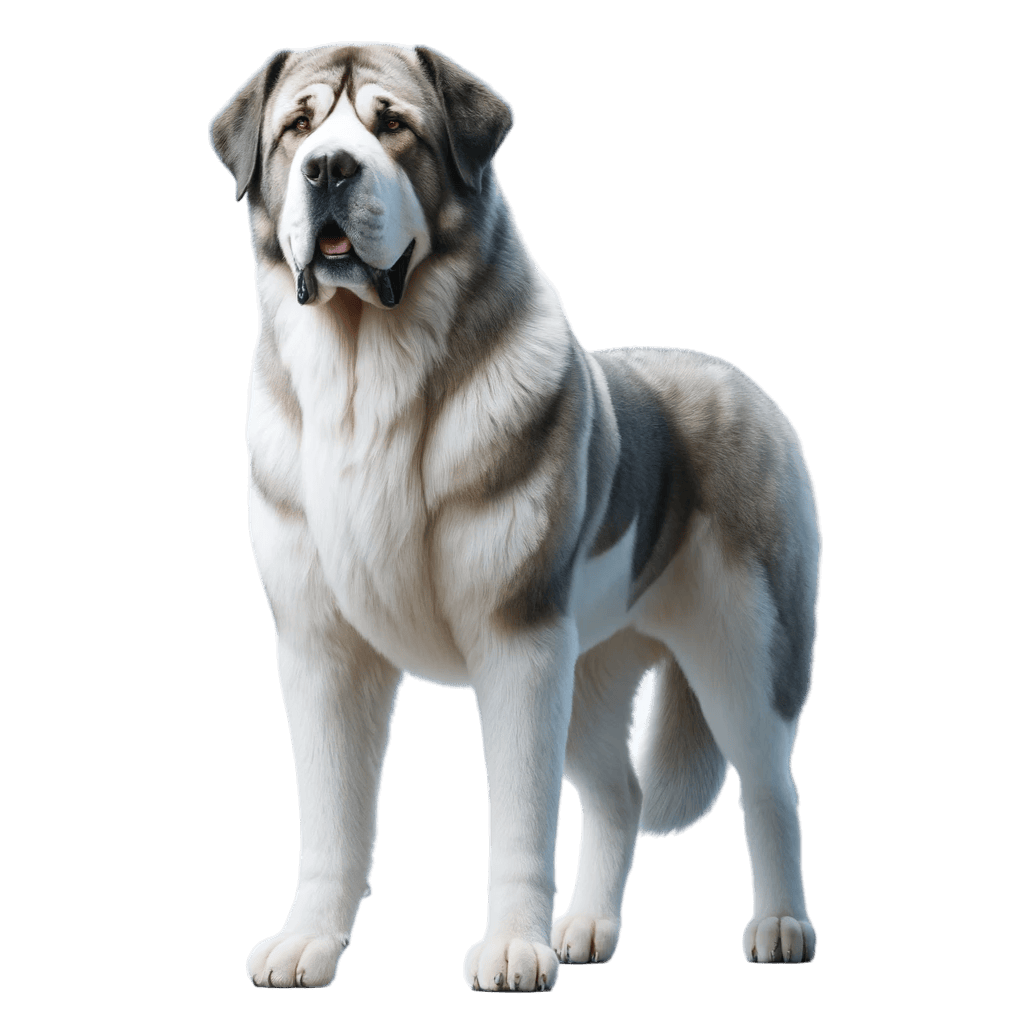POLISH HUNTING DOG – a melodious tracker
A brief overview
The Polish Gentleman is a versatile hunting dog, known for its balanced temperament, loyalty and intelligence. These dogs are distinguished by their stamina, distinctive deep voice and muscular physique with black, under-furred coat. Their health and vitality make them prized both at work and at home.
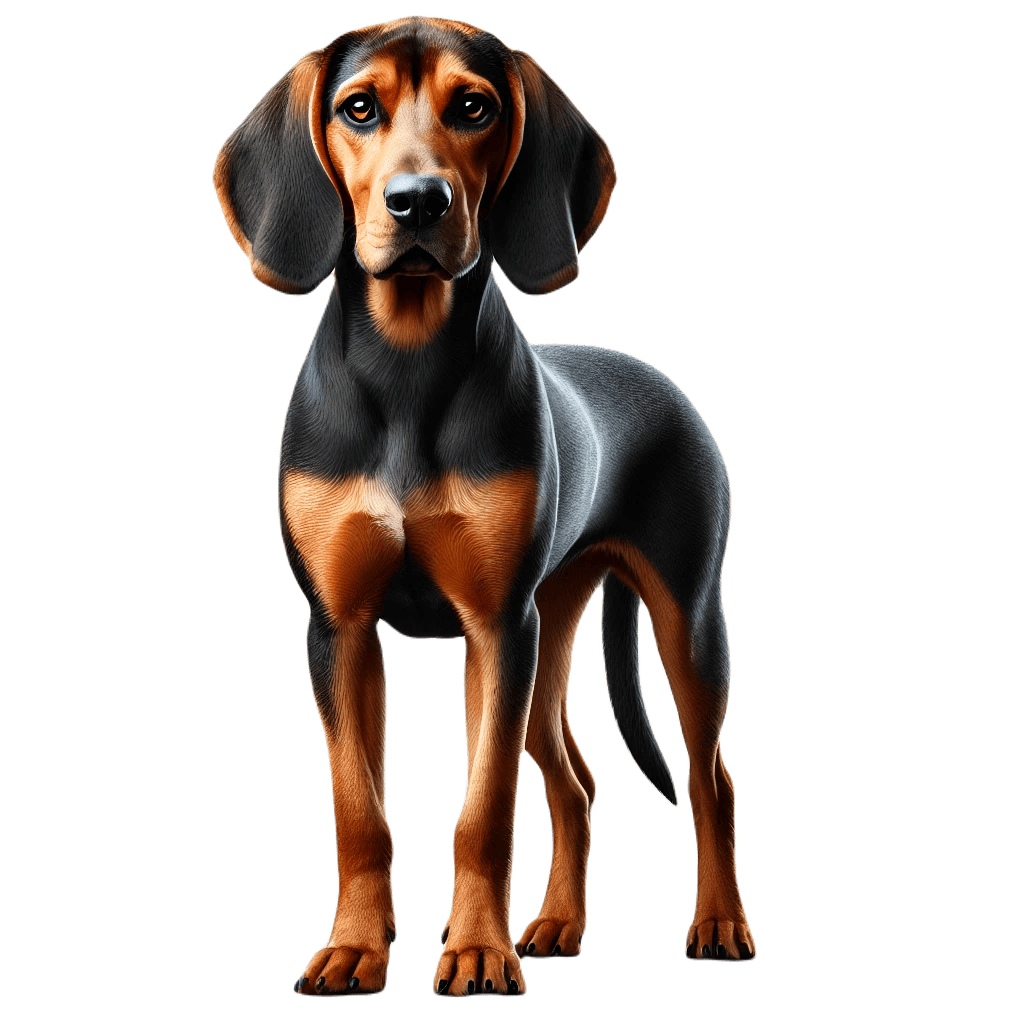
Table of contents
Country of origin
The dog originated in Poland.
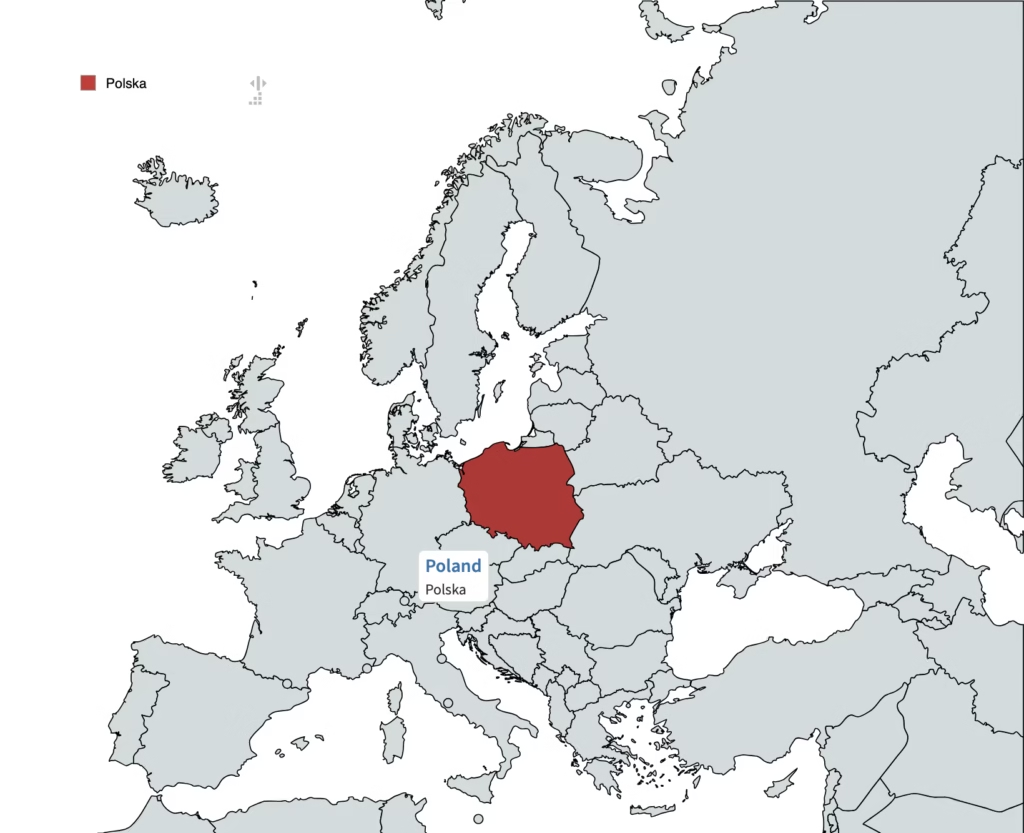
BREED CHARACTERISTICS
Weight
27 – 36 kg.
Height
Dog 55 – 59 cm, bitch 50 – 55 cm.
Type of hair
Hair on the trunk is short, stiff and clinging, and silky on the head and ears. Coat color is black underbrush, chocolate or red.
Life expectancy
14 – 15 years.
Health
The breed is considered hardy and healthy.
Character
Balanced, intelligent, courageous and gentle but distrustful of strangers.
Need for exercise
Very big!
FCI classification
Group 6 (hounds and related breeds), section 1.2 (medium-sized hounds).
Price
2,500 – 4,000 PLN (ZKwP).
History and origins
The Polish Gentile is a breed with roots dating back to the Middle Ages. It originated from St. Hubert’s dogs brought to Poland from western Europe. Initially used for hunting by Polish nobility, its breeding was interrupted by the partitions and world wars. Reconstruction of the breed took place after World War II thanks to Colonel Józef Pawłusiewicz. Officially recognized by the FCI in 2006, the breed is valued today for its stamina, intelligence and balanced character, proving itself both in hunting and as a companion for active families.
Appearance and physique
The Polish Gentleman is a medium-sized dog with a compact, springy body and rectangular figure. It is characterized by a proportionate head with dark brown eyes that express intelligence and gentleness. Its coat is dense, hard and clinging, with thick undercoat, usually in black color with rusty undertones. The ears are medium in size, hanging down and rounded at the tips. The tail is thick at the root, tapering toward the tip, carried low at rest, but can be lifted during movement or excitement.
Temperament and behavior
The Polish Gentleman is a dog with a balanced and gentle temperament, which is distinguished by its high loyalty and attachment to its family. He is intelligent and eager to learn, making him amenable to training. However, these dogs have a strong hunting instinct, making them in need of lots of exercise and mental stimulation. They can be a bit distrustful when dealing with strangers, but are very affectionate and friendly towards their handlers. They usually get along well with children, making them good family dogs.
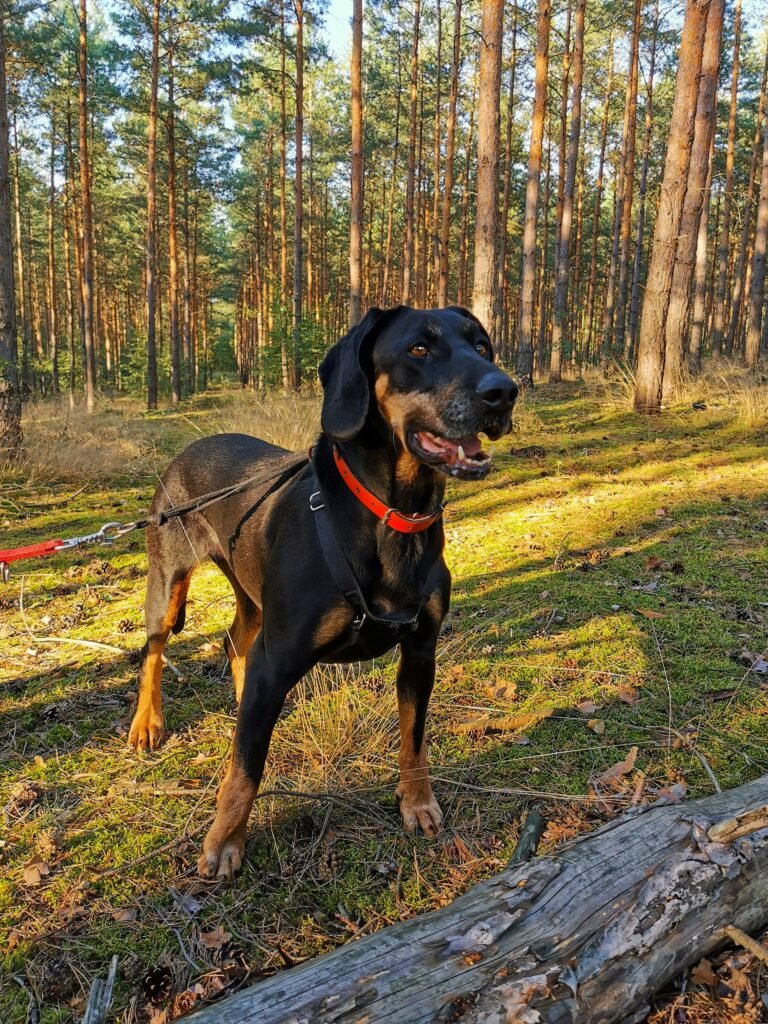
Training and activity
The Polish Gentian is an intelligent and eager-to-learn dog, but it is also independent. It requires consistency in training and clear rules. Socialization with other dogs is also key. When it comes to activity, the Polish Gentile needs plenty of exercise in the form of regular, long walks. The ideal type of activity for a Mongolian will also be any sports related to sniffing and tracking, such as nosework or mantrailing. Physical and mental activity not only keeps him fit, but also prevents boredom, which can lead to destructive behavior.
Health and life expectancy
The Polish Gentian is a generally healthy and sturdy breed, characterized by longevity, with representatives often living up to 15 years. Thanks to their sturdy build and active lifestyle, these dogs rarely have health problems. Still, like any breed, they can be prone to certain diseases. The most common problems include hip and elbow dysplasia, gastric dilatation and torsion, and inflammation of the external auditory canal. Due to their high level of activity, skin injuries or orthopedic problems are also relatively common in Polish Gentlemen.
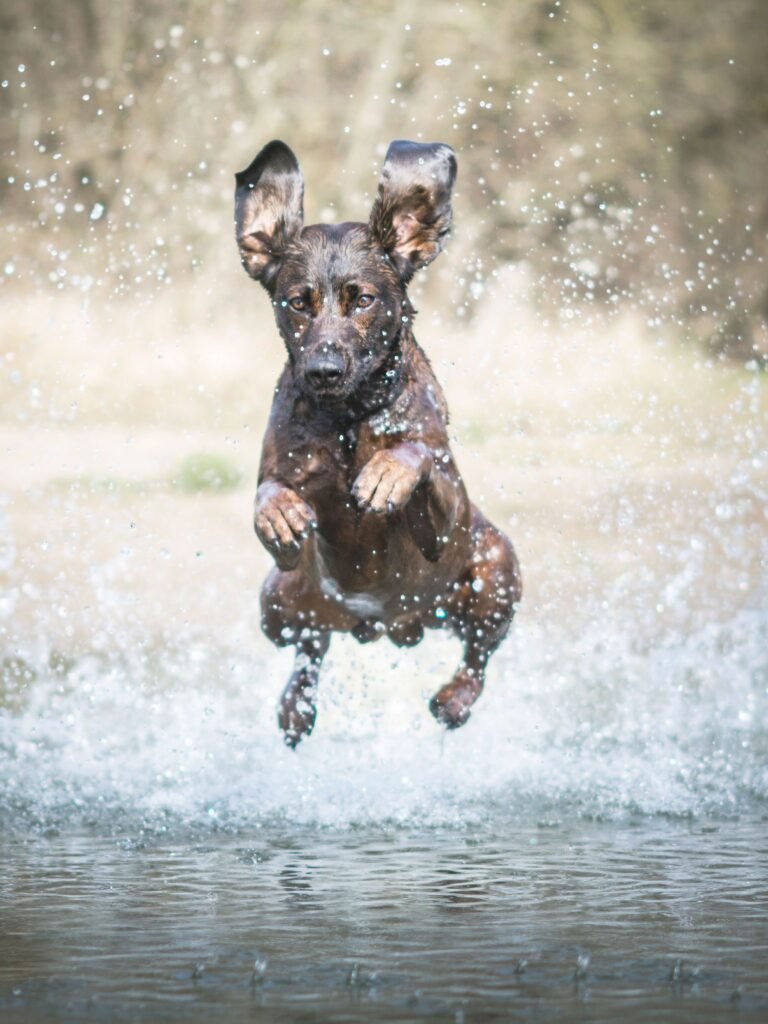
Care and custody
Grooming the Polish Gentian is relatively easy, thanks to its short and clinging coat. Regular brushing once a week will help keep the coat in good condition and minimize shedding. These dogs do not require frequent bathing, it is enough to bathe it every 2-3 months, unless it gets extremely dirty beforehand. It is important to check and clean their ears regularly to prevent infections.
Diet and nutrition
The Polish Gentile’s nutrition should be well balanced and adapted to his active lifestyle. However, overfeeding should be avoided to prevent overweight, which can lead to health problems such as joint dysplasia.
Maintenance costs
The cost of maintaining the Polish hunting dog is moderate.
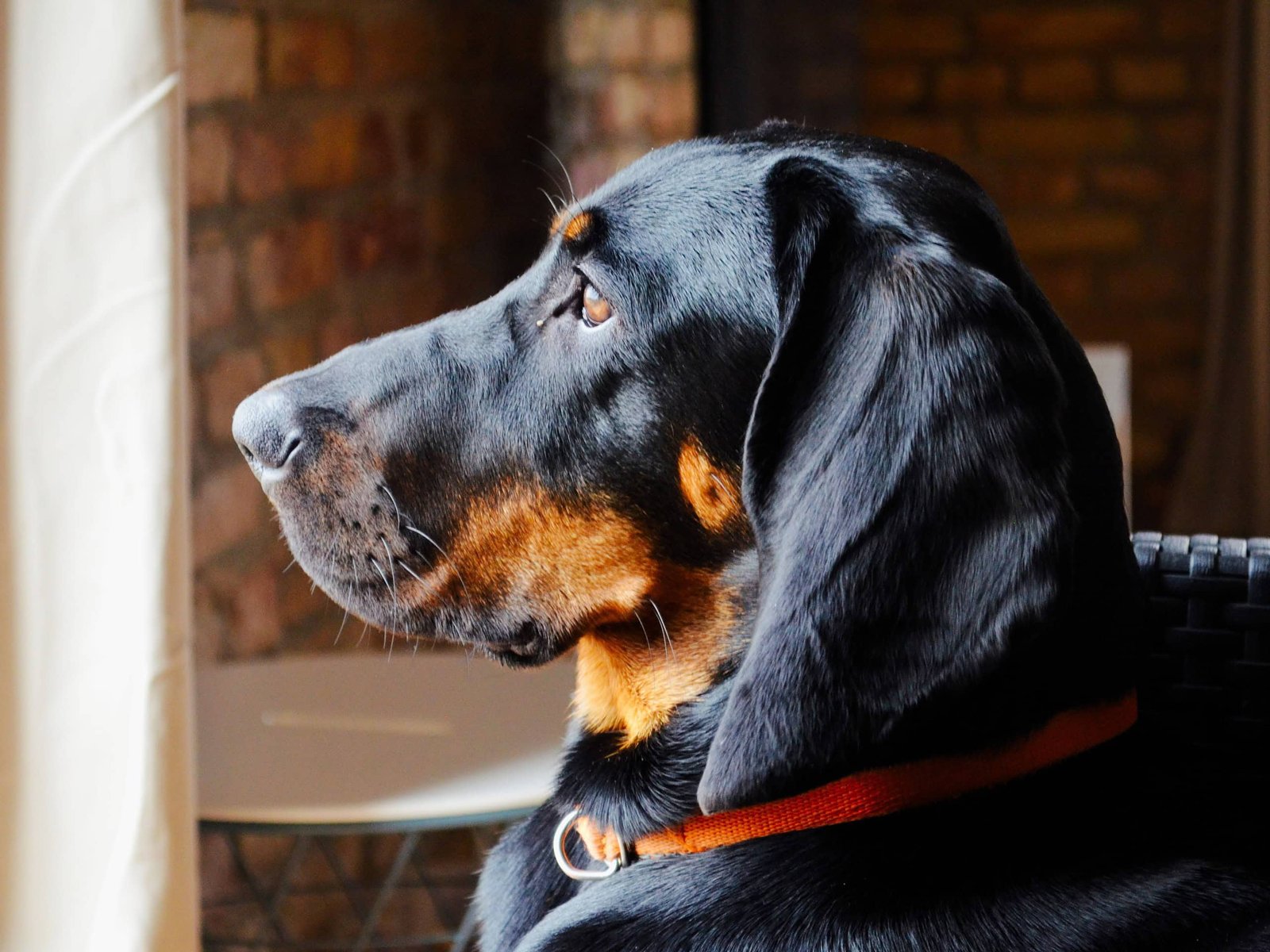
Buying or adoption
The choice between buying or adopting a Polish Gentile is a decision that depends on many factors and personal preferences. Buying a dog from a reputable breeder can provide full knowledge of the dog’s background, health and early socialization. On the other hand, adopting a Polish Gentile from a shelter or rescue organization gives a second chance to a dog that needs a home. However, due to its independent nature and hunting predisposition, life with such a dog can prove difficult, especially for a novice handler.
Own breeding
Running one’s own Polish Mongrel kennel requires passion, knowledge and commitment. The breeder must be familiar with the breed’s standards and take care of the health and well-being of the dogs, providing them with proper living conditions, diet and veterinary care, including preventive examinations for hip and elbow dysplasia. An ethical approach, selection of suitable breeding pairs and socialization of puppies are important. Participation in dog shows and contact with other breeders helps maintain a high standard of breeding. It is a responsibility and a way of life that brings much satisfaction to breed lovers.
Did you know?
Summary
Through the eyes of a behaviorist
The Polish Gentian is a breed with an exceptionally balanced temperament, characterized by intelligence and a high ability to learn. With their loyalty, attachment to their handler and willingness to cooperate, these dogs are relatively easy to train. However, their natural hunting instincts mean that they need a lot of physical and mental activity in order to be happy, healthy and not cause parenting problems.
Through the eyes of a veterinarian
The Polish Gentleman is generally a healthy and hardy breed, rarely suffering from serious health problems. Due to their activity, however, these dogs can be prone to injury, so it is important to monitor the condition of their skin, joints and muscles. Hygiene and regular monitoring of the condition of the ears is also very important, as Polish Gentlemen are prone to ear inflammation. With proper veterinary care, Polish Gentlemen can enjoy a long and healthy life.
